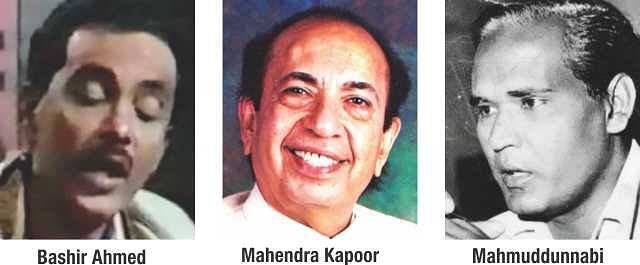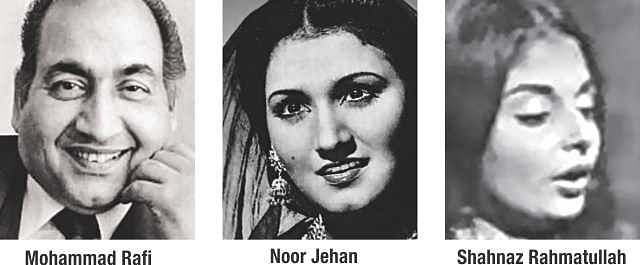When music exuded romance . . .

Song sequences in movies are not what they used to be. What you have these days are, in the beginning, a man and a woman in love initiating what looks like a song. Then, out of nowhere, a whole bevy of men and women, gyrating and screaming in various modes of outlandish behaviour, swarm all over the place and join our two lovers in that song. And what a song! It is acrobatics, comedy and shaking illness, almost like palsy, all combined. Women bare their midriffs as much as they can and men take off their shirts and a point comes when nearly everyone, men and women, begin to roll on the floor or the grass, as the case might be. And that song? It turns into a curious mix of various sounds, stringing together a long series of nonsense. You learn nothing from it. Romance goes fugitive.

But, yes, there was a time when songs were beautiful and innocent and evocative of high romance. Think of the duets that the stars of yesteryears sang, through their playback singers, in the 1950s and 1960s. In Bangladesh, songs like tumi keno bujhona je speak of love as it should be; or dwell on tumi je amar kobita amaro banshi'r raagini. When such songs are heard these days, it is not just nostalgia which assails us. It is also a reminder of how far love songs have fallen in quality in these times. Where can you have another Mahmuddunnabi or another Sabina Yasmin? And think of the solo numbers, such as Shahnaz Rahmatullah's phooler kaane bhromor eshe chupi chupi boley jaaye. The accompaniment of the piano, along with the presence of a very young Razzak and Babita, creates ripples in the soul.
Sadness is what often lends a greater degree of quality to music. When Dilip Kumar sings, through Mohammad Rafi's voice, koi saghar dil ko behlata nahin bekhudi mein bhi qarar aata nahin, you realise why it is sometimes necessary to lose in love. As Tennyson said once, 'tis better to have loved and lost than never to have loved at all. If you accept that, you will know the pain eating away inside Bashir Ahmed as he sings ae pyar shukriya tera tu ne jo gham diya hai. When Manna Dey sings borho eka laage ei aandhare, it is a fusion of intense love and profound sadness that you get in the melody. Observe that there are no intruders around, like those we see in the movies these days.
In the old days, sexuality was not on display in songs. There was only riveting sensuality, as in Mahendra Kapoor's ae jaane chaman tera gora badan jaise khilta hua gulab. And then there was pristine passion, as in Noor Jehan's aadhi raat ka chanda chamke ab to sajna jaane de.
Ah, those old days that refuse to let go of memory!
The writer is Executive Editor,
The Daily Star

 For all latest news, follow The Daily Star's Google News channel.
For all latest news, follow The Daily Star's Google News channel. 



Comments